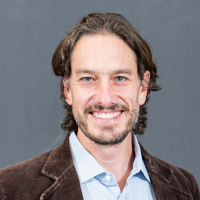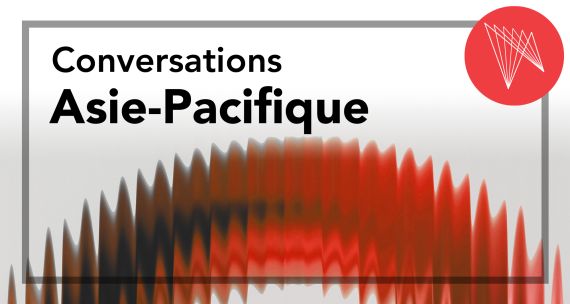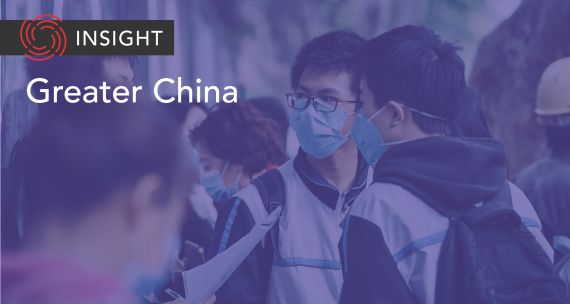On March 26, more than 25 physicians from Vancouver Coastal Health had a conference call with doctors and nurses in Wuhan, China – arguably the first responders on the frontline of the global war against COVID-19. The call was the first of several designed for Vancouver health-care professionals to learn from China’s experience around pandemic response and mitigation. Over the course of 45 minutes, China’s doctors and nurses spoke about the challenges, best practices, and experiences they have had in dealing with the coronavirus outbreak.
A representative from the Asia Pacific Foundation of Canada (APF Canada) participated in the call as an observer. APF Canada will remain involved in future discussions and recount the main topics discussed in a series of blog posts called the ‘Wuhan Dispatch.’
APF Canada hopes the Wuhan Dispatch will inform policy discussions in Canada by introducing best practices in China around pandemic response. Chinese health workers have been dealing with the COVID-19 outbreak for over three months. Over this period of time, Chinese hospital administration officials have formulated procedures and policies in line with their past successes and failures. Canada’s national and provincial governments and Canadian health-care providers can learn from China’s experience as they develop and refine their own pandemic responses and policies.
The following notes outlined the main discussion points between Vancouver-based health-care professionals (Vancouver side) and their Chinese counterparts (Chinese side).
To begin, the Vancouver side asked the Chinese side what advice they would give Vancouver-based doctors and nurses that they could implement immediately (the next morning) to deal more proactively with coronavirus cases.
Somewhat disconcertingly, Chinese doctors took pains early on in the discussion to highlight the limited role that health-care professionals can play in stopping the spread of COVID-19. As there is no cure yet for the disease, doctors and nurses are limited to treating coronavirus symptoms, rather than its underlying causes. Chinese health-care providers’ primary role to date has been, rather, to ease the suffering of those with coronavirus.
The Chinese side instead stressed the importance of social distancing and self-isolation in stopping the virus’ spread. Based on the Wuhan experience, the Chinese health-care professionals argued the only way to effectively limit the virus’ spread is through a reconceptualization of how society functions and of state/society relations.
With regard to hospital administration and management, the Chinese side described how they have established separate areas for treatment of COVID and non-COVID cases. Hospitals in Wuhan are now effectively divided between areas and staff that work with coronavirus patients and those that treat patients in need of different care. The intent in creating a hard demarcation between COVID patients and non-COVID patients is to prevent cross-contamination.
Chinese officials have established three distinct ‘Districts’ within Wuhan hospitals so that health-care professionals can transition from contaminated to non-contaminated areas more effectively. Doctors and nurses treat COVID patients in District 1, for example, and use District 2 to decontaminate themselves at the end of their shifts. District 3 is a “clean area,” which also serves as a staging area for entry/re-entry into District 2 and District 3. Doctors and nurses de-robe in District 2 to limit further virus transmission.
The Chinese side also noted that many, if not all, health-care professionals working with COVID patients are self-isolating in local hotels and dormitories. In remaining isolated from family and friends, Chinese doctors and nurses are ensuring they do not contribute to community spread. The Chinese side noted the challenge such separation poses for the health-care professionals’ personal lives.
The Chinese side further highlighted the importance of continued hygiene in preventing the spread of COVID-19 to hospital staff. The hospital’s Head Nurse, for example, described her handwashing routine on treating COVID patients as wash before, during, and after contact.
To limit potential spread, the Chinese side also noted a move from in-person to online diagnosis and triage. Chinese hospital officials also established fever clinics within the hospital to isolate potential COVID-19 patients from the hospital’s general population as quickly as possible. The Chinese doctors noted that mass panic and a rush to local emergency rooms in the pandemic’s earlier phases enabled community spread of COVID-19. Chinese hospitals are now taking measures to prevent a reoccurrence of these events in the future.
Anecdotally, the Chinese Head Nurse noted that all Chinese health-care professionals now wear masks even when eating in the hospital cafeteria. Individuals take turns removing their masks to eat, in line with a formal policy that only a certain percentage of those in the cafeteria can remove their masks at the same time.
During the video discussion, the severity of the situation in Wuhan was clear. Despite their ubiquitous wearing of masks and other protective gear, one could clearly see both fatigue and determination in the Chinese health-care professionals’ eyes. For the doctors and nurses in Wuhan on the frontline, the fight against COVID-19 is clearly a war; one that is taking all the tools of the Chinese state to wage and one that depends on their continued professionalism and dedication to serving those Chinese in need.
For the Vancouver health-care professionals on the call, there was a clear sense of urgency to learn of their Chinese counterparts’ best practises and to gauge the coming severity of the public health challenge they will face. These shared experiences will be critical going forward, particularly as the lessons coming from China represent a highly professionalized and well-resourced public health community effort.
APF Canada looks forward to being a part of further discussions between Canada’s and China’s health-care professionals. As this is a global pandemic, learning from China’s experience, as well as those from other Asian countries, will be critical in helping Canada develop its own unique approach.





